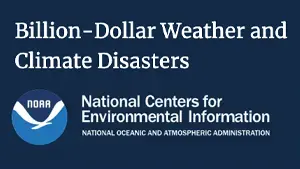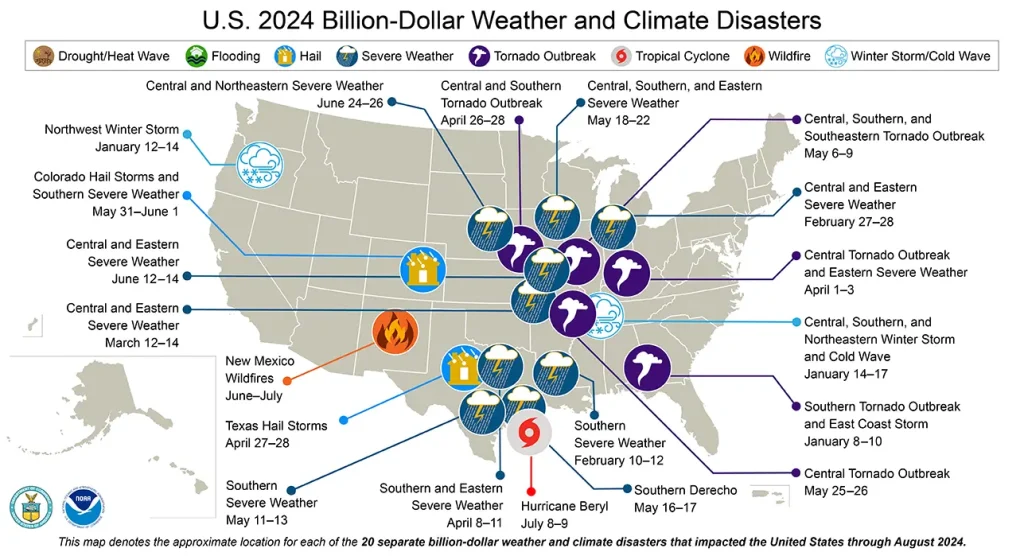 The National Centers for Environmental Information’s (NCEI) Billion-Dollar Disasters product is intended to show the impact of extreme weather and climate events on the economy in inflation-adjusted dollars.
The National Centers for Environmental Information’s (NCEI) Billion-Dollar Disasters product is intended to show the impact of extreme weather and climate events on the economy in inflation-adjusted dollars.
NCEI is the Nation’s Scorekeeper in terms of addressing severe weather and climate events in their historical perspective.
As part of its responsibility of monitoring and assessing the climate, NCEI tracks and evaluates climate events in the U.S. and globally that have great economic and societal impacts.
NCEI is frequently called upon to provide summaries of global and U.S. temperature and precipitation trends, extremes, and comparisons in their historical perspective. The Billion-Dollar Disasters product is intended to show the impact of extreme weather and climate events on the economy in inflation adjusted dollars.
The U.S. has sustained 396 weather and climate disasters since 1980 where overall damages/costs reached or exceeded $1 billion (including CPI adjustment to 2024). The total cost of these 396 events exceeds $2.780 trillion.
Click here to view the resource.





